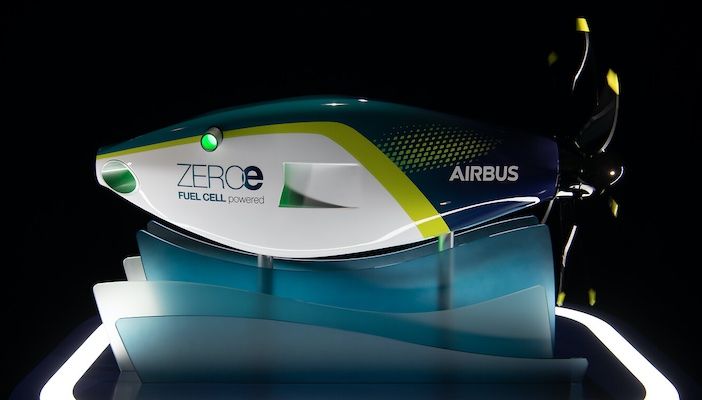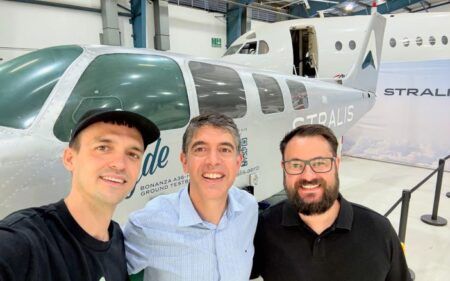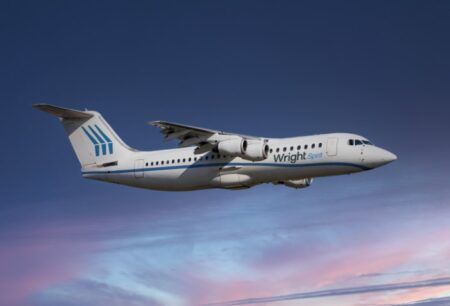Airbus has showed off for the first time the hydrogen-powered fuel cell propulsion system it is developing for the zero-emission range of aircraft it aims to enter service by 2035.
Airbus plans to start ground and flight testing the fuel cell system onboard its ZEROe demonstrator aircraft within the next five years it said.
The system will be tested on the the A380 MSN1 flight test aircraft, which is currently being modified to carry liquid hydrogen tanks and their associated distribution systems.
Glenn Llewellyn, vice president of zero-emission aircraft at Airbus said, “Fuel cells are a potential solution to help us achieve our zero-emission ambition and we are focused on developing and testing this technology to understand if it is feasible and viable for a 2035 entry-into-service.
“At scale, and if the technology targets were achieved, fuel cell engines may be able to power a one hundred passenger aircraft with a range of approximately 1,000 nautical miles.
“By continuing to invest in this technology we are giving ourselves additional options that will inform our decisions on the architecture of our future ZEROe aircraft, the development of which we intend to launch in the 2027-2028 timeframe.”
Airbus favors hydrogen as one of the most promising alternatives to power a zero-emission aircraft, because it emits no carbon dioxide when generated from renewable energy, with water its most significant by-product.
Fuel cells are one way hydrogen can be used as a fuel in aircraft. The alternative method, hydrogen combustion uses a gas turbine. Fuel cells convert hydrogen into electricity to power a propeller engine, although a hydrogen gas turbine could also be coupled with fuel cells instead of batteries in a hybrid-electric architecture.
Airbus has been investigating fuel cell propulsion systems for aviation applications for several years and in October 2020 created Aerostack, a joint venture company with fuel cell developer ElringKlinger.
The European aircraft maker is not the only company developing fuel cells for use in aviation, with several startups such as ZeroAvia, H2FLY and Universal Hydrogen building smaller fuel-cell based powertrains for regional aircraft.





